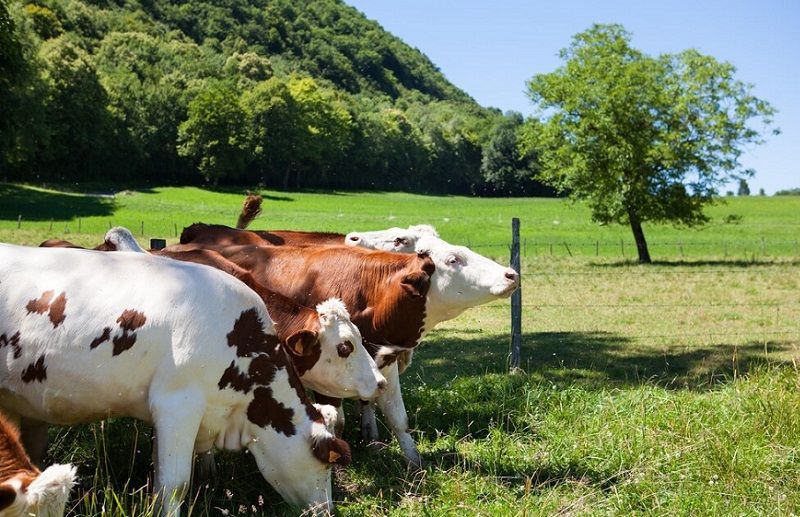Swedish Dairy Farmers Grapple with Rising Challenges
Sweden's dairy industry is facing mounting pressures as farmers grapple with growing regulatory complexities and dissatisfaction with cooperative systems, a European Milk Board report revealed on Monday.

Claes Jonsson, president of Dairy Farmers of Sweden, said frustration is mounting among members over increasing bureaucracy and the burden of sustainability initiatives.
“Arla, the country’s largest dairy cooperative, has been a focal point of criticism,” Jonsson said. “Farmers are expressing dissatisfaction with the Arlagården system and the demands for climate calculations and sustainability payments.”
Farmers argue that climate assessments fail to accurately reflect carbon sequestration benefits, especially for those managing larger landholdings. This has led to widespread perceptions of inequity and growing discontent.
“The strain isn’t just financial,” Jonsson said. “It’s affecting morale, autonomy, and the sense of ownership that farmers have traditionally held. Many are questioning whether the systems in place truly support their livelihoods.”
Adding to the uncertainty is Lantmännen’s acquisition of HKScan’s Swedish slaughter division. The move, Jonsson said, could disrupt slaughtering and pricing dynamics, further complicating the sector’s outlook.
“This winter is shaping up to be especially tough, but the broader concern remains the long-term future of Swedish dairy farming,” Jonsson said, calling for proactive measures to halt the industry’s decline.
Inspired by farmer protests across Europe, some Swedish farmers have voiced support for collective action. However, Jonsson noted that mobilizing widespread momentum for change in Sweden has proven difficult.
“We admire the determination of our EU counterparts and stand in solidarity with their efforts,” Jonsson said. “But here in Sweden, significant change is driven by only a few, making unified action challenging.”
Jonsson emphasized the need for targeted reforms to address the sector’s grievances, restore fairness, and secure the future of dairy farming in Sweden’s agricultural landscape.
“Arla, the country’s largest dairy cooperative, has been a focal point of criticism,” Jonsson said. “Farmers are expressing dissatisfaction with the Arlagården system and the demands for climate calculations and sustainability payments.”
Farmers argue that climate assessments fail to accurately reflect carbon sequestration benefits, especially for those managing larger landholdings. This has led to widespread perceptions of inequity and growing discontent.
“The strain isn’t just financial,” Jonsson said. “It’s affecting morale, autonomy, and the sense of ownership that farmers have traditionally held. Many are questioning whether the systems in place truly support their livelihoods.”
Adding to the uncertainty is Lantmännen’s acquisition of HKScan’s Swedish slaughter division. The move, Jonsson said, could disrupt slaughtering and pricing dynamics, further complicating the sector’s outlook.
“This winter is shaping up to be especially tough, but the broader concern remains the long-term future of Swedish dairy farming,” Jonsson said, calling for proactive measures to halt the industry’s decline.
Inspired by farmer protests across Europe, some Swedish farmers have voiced support for collective action. However, Jonsson noted that mobilizing widespread momentum for change in Sweden has proven difficult.
“We admire the determination of our EU counterparts and stand in solidarity with their efforts,” Jonsson said. “But here in Sweden, significant change is driven by only a few, making unified action challenging.”
Jonsson emphasized the need for targeted reforms to address the sector’s grievances, restore fairness, and secure the future of dairy farming in Sweden’s agricultural landscape.
Key News of the Week










